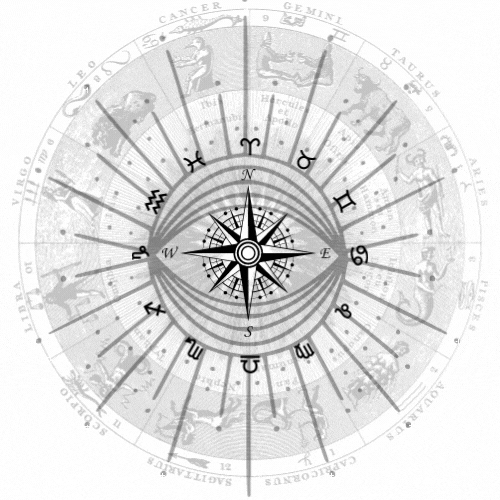A Brief History Of Astrology Throughout The Ages
The history of astrology is intricate. It fascinates many. Some define astrology as the human attempt to make sense of what’s happening in the sky and how it directly correlates back to us, which is based on the exact time that we were born. Others believe that aliens came and taught us the languages of the stars and planets. Personally, I believe that through Divine Inspiration, humans were given insight into how everything is interconnected. As above so below.
If you have had the chance to dig a little deeper into astrology, then you’re likely aware that there’s more to it than just your Sun sign. Nobody really knows when the human desire to make sense of the planets and how they connect back to us officially started. The earliest evidence, found in caves and markings on bones, dates back to a period of approximately 25000 years ago. This evidence can’t exactly be categorized as astrology as we know it today, but it does portray that humans had a particular interest in the sky and how it related to their life.
When we are talking about astrology as an organized system, evidence points back to, what is known as, Babylonian astrology as the earliest record of it. Babylonians were able to pinpoint lunar eclipses with pristine accuracy. Some argue that the Dogon people of Africa were the first. Many Dogons (or Kaador, Kaado people of Mali) were stargazers. They passed down their wisdom orally to their descendants. Many myths and folktales sought to explain the interchanging of the planets in the sky, far before any organized system of astrology existed. Babylonian astrology dates back to the second millennium BC, but there has been evidence of astrology existing (in some form) during the Sumerian, which dates back to a period in the third millennium BC.
However, the reason why it’s so hard to pinpoint the exact “start” of astrology as an organized system is due to the fact that we as humankind, through anthropological research, continuously find new evidence of “humans being curious about the sky”. If you were an ancestor with no technology, no book, and not much playtime, wouldn't you hyper-focus on the rising and setting of the Sun and Moon and the stars?
Throughout human history, you can recognize a multitude of different types of astrology. There are different systems, different methods of usage, different applications, and different branches of astrology. Some examples are Egyptian astrology, Chinese astrology, Mayan astrology, Hellenistic astrology, Persian astrology, Celtic astrology, medical astrology, and so on.
Nowadays, we can merely type in our personal birth data into a website or astrology app, and we are given our birth chart, and often times a detailed explanation of what certain placements or interplanetary activity means. In ancient times, an astrologer would do this by using a special board in order to illustrate the position of the planets when a person was born. Now we have websites and numerous astrologists who can do this quickly.
Almost every organized society practiced some form of astrology. People simply knew, or felt, that what was happening in the sky had some sort of connection to the events that were occurring on Earth. Whether you consider it a pseudoscience or a factual belief system, astrology has been around for a very long time and will only continue to exist, and perhaps even evolve.
Happy New Year!


